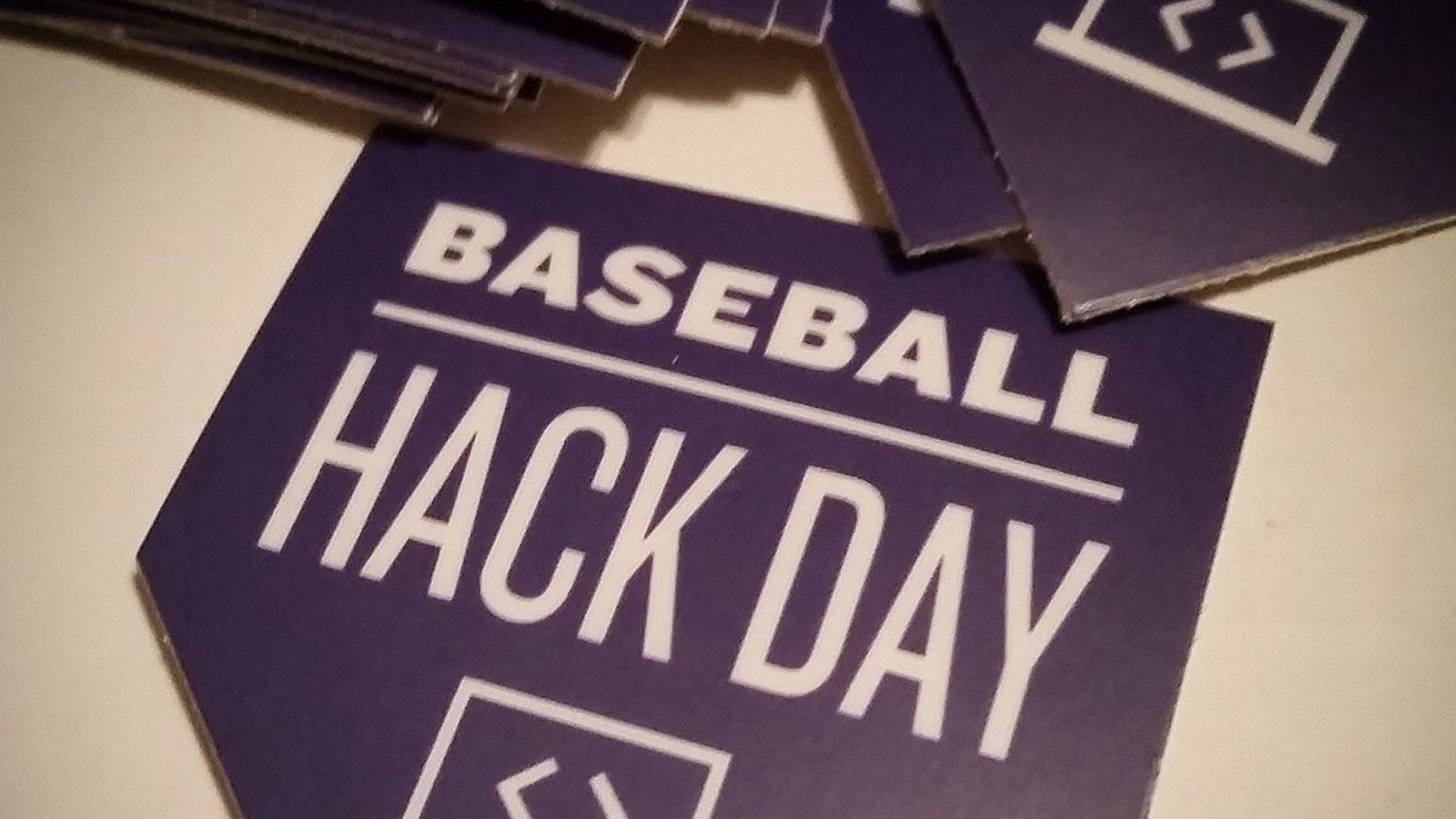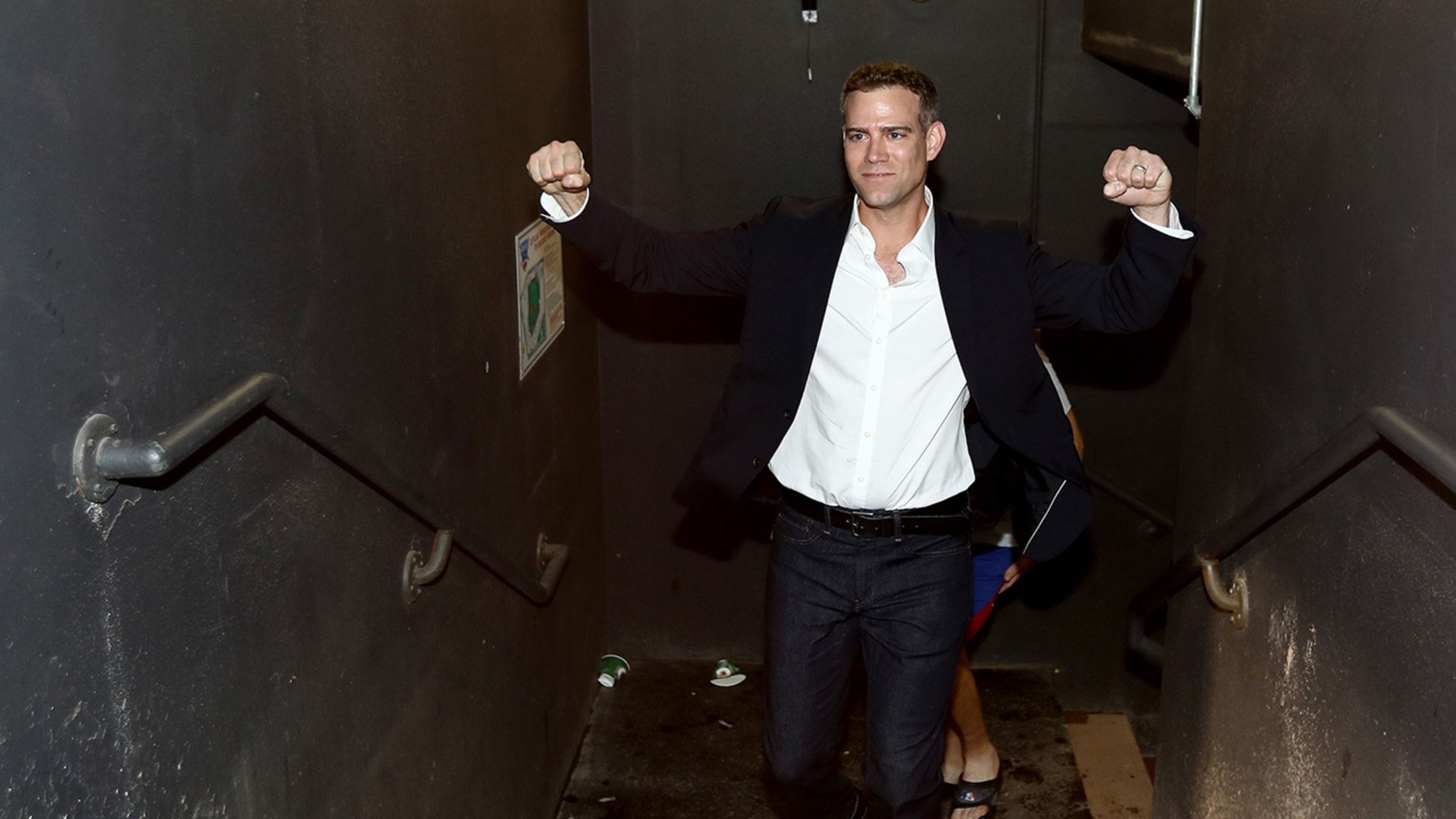The future of baseball technology was on display at the sixth annual Baseball Hack Day

If Baseball Hack Day is any indication, the future is now. In its sixth year of existence, roughly 100 baseball fans and programmers turned out on March 25 to spend one single day turning their baseball tech dreams into reality.
On Saturday — Join @GA_boston for their 6th annual Baseball Hack Day, a #hackathon for baseball & #coding fans: https://t.co/X6uTa2euEh pic.twitter.com/KuW2VTplsc
— Microsoft New England (@MSNewEngland) March 22, 2017
Its founder, Daigo Fujiwara, has seen his passion project grow out of a Boston meetup group called Hacks/Hackers into the four city (Boston, Montreal, Chicago and San Francisco) bonanza it was in 2017 -- with MLBAM an official sponsor of the event. Fujiwara, a developer for a Boston public radio station and a yearly participant (this year, his project looked at bunts), never planned on it growing this quickly.
After making a document to help people host their own version of the event, Fujiwara told MLB.com in a phone call that, "It's all volunteer based. The only rule that I have is you cannot charge the participants. I want the people to be able to participate in the hackathon for free."
Congratulations to all participants and volunteers of Baseball Hack Day and thank you to all sponsors who made this free-event possible.
— Daigo Fujiwara (@DaigoFuji) March 29, 2017
This year's Hack Day projects ran the gamut from dating apps to fantasy tools to music software whose notes are determined by pitch location. (If you're curious, it sounds a lot like the score to a 1970s Italian zombie film.)
But the winners of the grand prize, including free MLB.TV for all participants and a six-month Real Time MLB Key to SportsRadar's API, were Boston's James Blackwell, Roman Jacquez and Bilal Bashir. They created an app called "Turn Two," bridging the gap between MLB.TV and Iron Man. Using a HoloLens, the group created an interactive, 3-D baseball viewing experience.
Augmented reality baseball! #hackbaseball pic.twitter.com/swdgIDWsK3
— BOS BaseballHackDay (@BaseballHackDay) March 25, 2017
Want to see a player's stats? Boom -- just pull them up with a swipe of your hand while wearing the Microsoft augmented reality headset. Need a 3-D model of a home run? Done. And, perhaps best of all: Hungry and in need of some Chinese delivery? That's been planned for already.
Check out their demo below:
In a phone call with MLB.com, Blackwell, who has a background in e-commerce and software design, and Jacquez, an engineer, explained that despite having careers and backgrounds in tech, this was very much a self-taught experiment.
Using software and tools that are so new meant that they "are still in developer mode," Blackwell said. "It's not like there's a ton of documentation. There are huge javascript libraries or huge front-end libraries or frameworks where you can leverage a bunch of existing stuff. That just doesn't exist for these kind of things."
In the span of one day, until the "moment of pencils down" at 5 p.m., as Blackwell put it, the two learned new software while creating a baseball fan's dream world -- which is exactly where the idea came from.
"If I'm sitting on a couch for Sunday Night Baseball, what's the dream? I don't want to get up to do anything," Blackwell joked. "I really want to be completely laid still."
Jacquez explained further. "We didn't want to create just another website, or another app or another data visualization. We wanted to do something totally out of this world. And what better way to do that than with a HoloLens and augmented reality?"
While "Turn Two" won the grand prize, the runners-up were plenty impressive. Chicago's group put together a walk-off Twitter bot, ensuring that no fan has to miss a crucial and exciting bottom of the ninth moment.
WE HAVE A WALKOFF! The Yankees just beat the Blue Jays 6 - 5! https://t.co/jfb6lyxC2S
— Walk Off Bot (@walkoffbot) March 25, 2017
And Montreal's winning submission featured a bot that replies with highly specific facts for baseball players:
@alexheggiemtl Dustin Pedroia is the player with the most 3B in 2006 and that was Born in the USA who is a millenial (1/1)
— MLB Awards (@bestinmlb) March 25, 2017
While there are some phenomenal achievements every year, it's "the silly ones that stick to you," Fujiwara said. Listing some of his personal favorites from prior Hack Days, he remembers a Chrome plug-in that replaced "home run" with Pedro Martinez's favored term, "Ding Dong Johnson." And, in the first year, "there was a project that converted a baseball player's salary to how many hot dogs you could buy in their home park."
Shoutout to Pedro Martinez for keeping “ding-dong johnson” alive as the best homer descriptor
— Pedro Moura (@pedromoura) October 10, 2016
Truly, anything and everything is welcome at the event. No worries if you're a novice who's interested in next year's hack day. Fujiwara says a knowledge of "basic HTML and javascript," along with familiarizing yourself with some of the data that's available in the Hack Day's wiki would be helpful. "I would suggest you start small and build up," he added.
As for the future of the event, Fujiwara doesn't imagine big changes. "I don't want to make it huge. I'd like it to keep going and sustaining the small success that we've had," he said.
That's how the winners felt, too. "We'll definitely keep working on [Turn Two], that's for sure," Blackwell said. "And we'll be back next year with a new idea."





